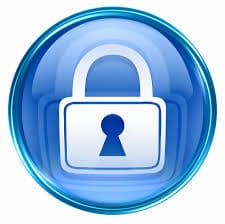By Eric O. Schueler, Senior V.P. of Information Technology at HRCT
Does Your Password Pass The Test?
So you want to create a new email account, shop for shoes online or pay a utility bill by computer. What’s one of the first things you will have to do on all of these sites? Most likely you will need to create password. If your first instinct is to type in easy-to-remember words or sequences such as “password” or “123456,” you may want to reconsider. Although passwords such as these are easy to remember, they are just as easy for a hacker to crack. In fact, these passwords top the 2012 list of the most popular passwords as reported by The Huffington Post. Because of their popularity, accounts with simple passwords are most likely to be “breached.”
The best passwords have a mix of numbers, letters and symbols using both upper and lowercase letters. I know that you are probably thinking, “But those passwords are hard to remember.” There is the possibility that you are correct in this assumption. It is probably easier to forget a password that meets this criteria, especially when you have so many accounts to remember.
The More Passwords The Better
A 2007 Microsoft study states “The average user has 6.5 passwords, each of which is shared across 3.9 different sites.” Remembering 6.5 passwords from week to week or month to month is hardly an easy feat, and it is nearly incomprehensible to consider remembering additional passwords for the 20+ accounts you navigate. However, just remember that hackers have an array of tools at their fingertips to break into your accounts. When you consider that if one of your “3.9” passwords gets phished, meaning a hacker steals your password off of a false page, that hacker is now able to log into multiple accounts.
Reevaluating Password Habits
The Microsoft study found that 78 percent of web users assign lowercase-only passwords. That means the majority of us need to get a little more creative when it comes to our password habits. As a society we are protective of our things. We get insurance for our valuables, security systems for our homes and alarms for our cars.
In the massive informational world of the internet, a password is the security system.
The percentage of people who use lower-case passwords only decreases when websites force people use alternate cases.
Those Annoying Password Meters Are Your Friends
Repeat with me, “Password meters are my friend.” Those green, yellow and red bars that make your head want to explode because they reject your favorite passwords as being “too weak,” thereby forcing you to add additional symbols and numbers, can be frustrating. Every time you see them you probably think, “I will never remember my password for this site!” Take a deep breath when you see them and utilize them. They are on your side, I promise, and they will help protect your accounts. Better yet, let them inspire you to use better passwords on all of your accounts.
According to a 2012 study by Carnegie Mellon University, password meters help urge people to create passwords that are harder for hackers and software to crack. The addition of password meters encouraged participants to make better, longer password choices using more numbers and symbols.
Think about it. You can always write down your password and store it somewhere safe—like in a safe, or worse case scenario, you forget it and reset it with a new, strong password.
Creating A Better Password
- Add length. The longer the password, the better.
- Mix lowercase and uppercase letters.
- Use numbers, symbols AND letters.
- Use different passwords for different accounts.
You can view the 25 most popular passwords of 2012 compiled by The Huffington Post here, to see if your passwords are the easiest to crack. If you have one on the list, I urge you to change it. If your passwords are all lowercase like the majority of us, add uppercase letters. It will be like re-keying your locks, and we all want to feel as safe as possible.
For these tips and help with your business computer security, contact Eric Schueler with HRCT. (757) 399-3350
Posted by Eric O. Schueler, A+, MCP, MCSE, MCTS, CSSA, ACSP – Senior V.P. of Information Technology at HRCT. Eric has been in the business of providing IT and consulting for small and medium business for more than 15 years.
Hampton Roads Communication Technologies (HRCT) provides quality business telecommunications solutions, like computer and data security to companies and organizations throughout the United States, Mid-Atlantic and the Hampton Roads Virginia cities of Virginia Beach, Chesapeake, Norfolk, Portsmouth, Suffolk, Newport News and Hampton, north into Williamsburg and south into the Outer Banks of North Carolina. HRCT keeps your company connected with 24/7 emergency service.

